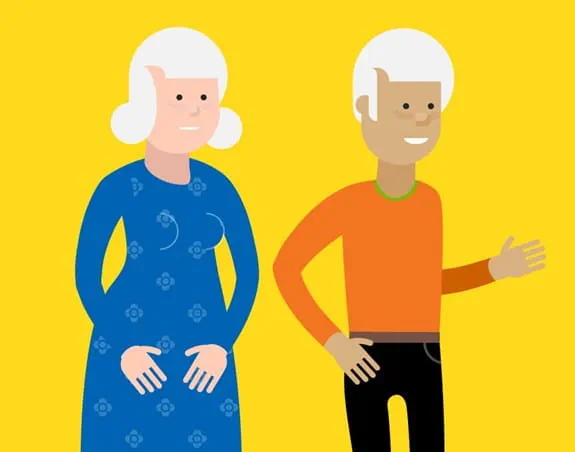When should I be screened for colorectal cancer?
Our recommendation
- If you are 50 to 74 and not at high risk for colorectal cancer, have a stool test every 2 years.
- If you are 75 or older, talk to your doctor about whether a stool test is right for you.

Follow-up
There is convincing evidence that stool tests with appropriate follow-up can significantly reduce deaths from colorectal cancer.
Follow-up for a positive test (that shows blood in the stool) should include a colonoscopy or flexible sigmoidoscopy.
A colonoscopy is not usually recommended as a routine screening test for people who don’t have a high risk for colorectal cancer. There isn’t enough evidence that it is more helpful than other available tests, and it has a slightly greater risk for harm.
People at high risk for colorectal cancer may need to be tested more often and at an earlier age than people with average risk. Talk to your doctor about your risk.
How do I know if I am at high risk for colorectal cancer?
Some people have a higher risk of colorectal cancer. People at higher risk may need to be tested more often and at an earlier age than people with average risk. You may be at higher risk if you have:
- a parent, sibling or child with colorectal cancer
- a personal history of colorectal cancer
- a personal history of non-cancerous (benign) polyps in the colon or rectum
- inflammatory bowel disease (ulcerative colitis or Crohn’s disease)
- inherited conditions, such as familial adenomatous polyposis (FAP) or Lynch syndrome (also called hereditary non-polyposis colorectal cancer, or HNPCC)
- signs or symptoms of colorectal cancer

Talk to your doctor about your risk. If you are at higher risk, you may need a personal plan for testing. This may include:
- stool test (gFOBT or FIT)
- genetic risk assessment, counselling and testing, if available
- colonoscopy
- flexible sigmoidoscopy
Your trusted source for accurate cancer information
With support from readers like you, we can continue to provide the highest quality cancer information for over 100 types of cancer.
We’re here to ensure easy access to accurate cancer information for you and the millions of people who visit this website every year. But we can’t do it alone.
Every donation helps fund reliable cancer information, compassionate support services and the most promising research. Please give today because every contribution counts. Thank you.
